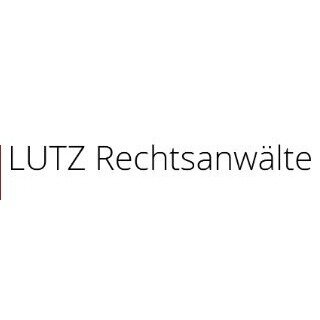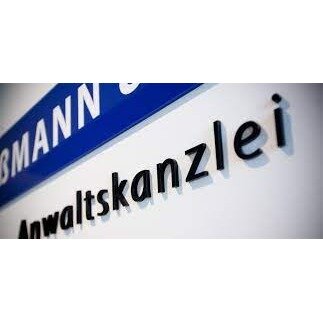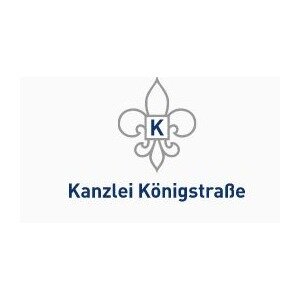Best Energy Regulatory Law Lawyers in Stuttgart
Share your needs with us, get contacted by law firms.
Free. Takes 2 min.
List of the best lawyers in Stuttgart, Germany
About Energy Regulatory Law in Stuttgart, Germany
Energy Regulatory Law governs the production, distribution, supply, and consumption of energy. In Stuttgart, as in the rest of Germany, it is shaped by both national and EU regulations. The city, located in the state of Baden-Wuerttemberg, follows laws designed to ensure fair energy markets, promote renewable energy, protect consumers, regulate public utilities, and encourage energy efficiency and climate protection. The legal framework covers electricity, gas, heating networks, and increasingly emerging areas such as hydrogen and electromobility. Regulatory oversight in Stuttgart aims to balance the interests of energy suppliers, network operators, businesses, and end consumers, while supporting the city’s ambitious goals for sustainability.
Why You May Need a Lawyer
There are various situations where legal expertise in Energy Regulatory Law becomes important:
- Seeking or renewing energy supply or network licenses
- Disputes between energy suppliers, consumers, or network operators
- Regulatory compliance for companies in generation, distribution, or trade of energy
- Projects involving the expansion or development of energy infrastructure
- Navigating subsidies and incentive schemes for renewable energy investments
- Addressing rate or tariff conflicts
- Energy contract negotiation and drafting
- Resolution of connection and feed-in disputes
- Support with energy efficiency requirements and reporting obligations
- Compliance with data collection and energy monitoring mandates
A legal specialist can help individuals, businesses, and public entities to interpret the complex regulations, avoid penalties, and represent their interests before regulatory authorities or in court.
Local Laws Overview
The framework for Energy Regulatory Law in Stuttgart includes several key statutes and regulatory bodies, influenced both by German Federal Law and directives from the European Union. The most important laws and authorities relevant to Stuttgart include:
- Energy Industry Act (Energiewirtschaftsgesetz - EnWG): Sets the legal structure for energy markets and grid regulation.
- Renewable Energy Sources Act (Erneuerbare Energien Gesetz - EEG): Provides feed-in tariffs and regulatory mechanisms to encourage renewable energy generation.
- Combined Heat and Power Act (KWKG): Focuses on supporting efficient and climate-friendly power production.
- Federal Network Agency (Bundesnetzagentur): Regulates Germany’s energy networks and enforces compliance with federal energy laws.
- Baden-Wuerttemberg State Energy Agency (KEA-BW): Advises on local implementation of energy policy, energy transition, and subsidy programs.
- Municipal Utility Laws: Many Stuttgart residents and companies interface with local Stadtwerke (municipal utilities), subject to local bylaws and contracts.
Recent legal developments focus strongly on decarbonization, energy transition, consumer protection, and digitalization of the energy grid. Stuttgart’s energy legal landscape is rapidly evolving, especially in the context of climate protection measures and the expansion of renewable energy infrastructure.
Frequently Asked Questions
What types of energy are regulated under Energy Regulatory Law in Stuttgart?
Electricity, natural gas, district heating, and increasingly hydrogen, as well as the integration of renewable energies like solar and wind, are all subject to regulation.
Who enforces energy regulations in Stuttgart?
The Federal Network Agency (Bundesnetzagentur), state authorities, and, for local network issues, municipal authorities enforce energy regulations.
Do I need a license to supply or distribute energy in Stuttgart?
Yes, companies wishing to supply or distribute energy must obtain the relevant licenses from regulatory bodies, in compliance with the EnWG and related laws.
What rights do consumers have regarding energy supply?
Consumers are protected under contract law, have the right to fair access, transparent billing, and can change suppliers freely. They also benefit from legal protections against sudden disconnection or unfair practices.
How does the Renewable Energy Sources Act affect local projects?
The EEG provides incentives and outlines obligations for renewable energy production, enabling feed-in tariffs and promoting local investment in renewables.
Can individuals and businesses generate their own energy?
Yes, self-generation is permitted and often encouraged, especially with solar or cogeneration systems. Rules for grid connection, compensation, and reporting must be followed.
What happens if there is a dispute over energy supply or billing?
Disputes can be addressed directly with providers, escalated to ombudsman services, or, if unresolved, taken to regulatory authorities or courts.
How are energy prices regulated?
Network charges and certain supply tariffs are supervised by the Bundesnetzagentur, ensuring transparency and compliance with guidelines to protect consumers.
Are there specific climate protection obligations for companies in Stuttgart?
Yes, companies may be subject to reporting obligations, energy audits, and must adhere to environmental standards set at both the federal and local levels.
Where can I find legal help for energy-related matters in Stuttgart?
Specialist lawyers, legal clinics, and consumer advice centers can provide support for individuals and businesses facing energy law challenges.
Additional Resources
Here are some helpful organizations and bodies for further information and support in Energy Regulatory Law in Stuttgart:
- Bundesnetzagentur (Federal Network Agency)
- KEA-BW (Baden-Wuerttemberg State Energy Agency)
- Stadtwerke Stuttgart (Municipal Utility Company)
- Verbraucherzentrale Baden-Wuerttemberg (Consumer Advice Center)
- Local chambers of commerce and trade associations
- German Renewable Energy Federation (BEE)
- Legal Aid Services and specialist energy law firms
Next Steps
If you need legal assistance regarding Energy Regulatory Law in Stuttgart, start by outlining your specific legal issue and collecting all relevant documents, such as contracts, correspondence, and invoices. Contact a local lawyer specializing in energy law, or reach out to consumer advice centers for an initial consultation. Timely action is important, especially when facing disputes or regulatory deadlines. In complex matters, engaging with a legal professional ensures your rights are protected and your interests are advocated before authorities or in court. Stay updated on legal developments by subscribing to updates from regulatory agencies or participating in local energy forums.
Lawzana helps you find the best lawyers and law firms in Stuttgart through a curated and pre-screened list of qualified legal professionals. Our platform offers rankings and detailed profiles of attorneys and law firms, allowing you to compare based on practice areas, including Energy Regulatory Law, experience, and client feedback.
Each profile includes a description of the firm's areas of practice, client reviews, team members and partners, year of establishment, spoken languages, office locations, contact information, social media presence, and any published articles or resources. Most firms on our platform speak English and are experienced in both local and international legal matters.
Get a quote from top-rated law firms in Stuttgart, Germany — quickly, securely, and without unnecessary hassle.
Disclaimer:
The information provided on this page is for general informational purposes only and does not constitute legal advice. While we strive to ensure the accuracy and relevance of the content, legal information may change over time, and interpretations of the law can vary. You should always consult with a qualified legal professional for advice specific to your situation.
We disclaim all liability for actions taken or not taken based on the content of this page. If you believe any information is incorrect or outdated, please contact us, and we will review and update it where appropriate.











